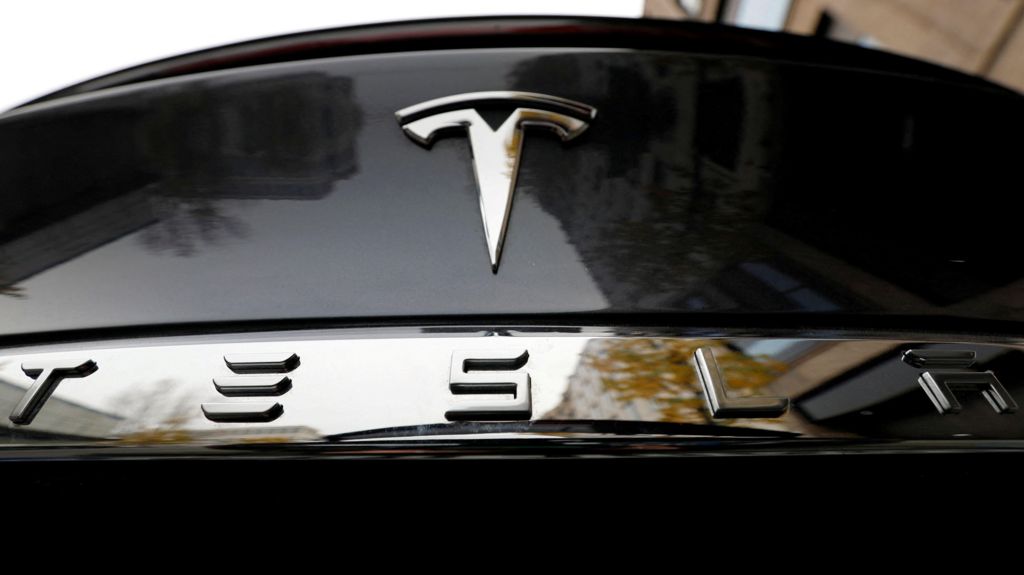Business
CRTC outlines rules for virtual wireless companies — but they’ll still need their own networks
|
|
The CRTC has published new rules governing cellular networks known as Mobile Virtual Network Operators, or MVNOs — rules the telecom regulator says it hopes will provide greater competition in the wireless market.
True MVNOs are cellular networks that have no infrastructure or spectrum of their own, but simply resell wholesale access to incumbent networks to consumers, typically for much cheaper.
Mint Mobile, owned by Canadian actor and entrepreneur Ryan Reynolds, is an example of a U.S. MVNO, which sells unlimited data, talk and texting plans within the U.S. for $30 a month. The company has no cellphone towers or spectrum rights of its own, but simply buys “space” on other companies’ cellular networks and resells access to it to consumers.
Last year, Canada’s telecom regulator established a policy to set ground rules for MVNOs wishing to operate in Canada. Under those new rules, a company like Mint still can’t operate in Canada because the CRTC requires any MVNO to have its own network somewhere in Canada, in order to piggyback on existing networks in the rest of the country.
Specifically, they must already have their own spectrum license, and plan to build a network in the region they want to piggyback in within seven years. If they can meet that bar, they qualify — but the only companies that meet it are existing ones.
On Wednesday, the regulator released more ground rules for any quasi-MVNOs wishing to set up shop. The telecom regulator didn’t change any of the basic framework it established in 2021, but did provide some more detail on what it wants to see happen now.
The major incumbents “must now begin accepting requests for access to their networks and enter negotiations with regional wireless providers to agree on wholesale MVNO rates,” the CRTC says.
The regulator says those negotiations will help ensure that qualified MVNOs have access to 5G networks where applicable, and that calls on their networks are not dropped as customers travel between coverage zones.
The regulator also says it has denied several provisions that would have made MVNOs more restrictive or difficult to use by regional players, and says it will block any move that would restrict regional providers from reselling their wholesale access to other MVNOs.
“We are one step closer to implementing our policy that will enable regional providers to offer wireless services in areas where competition is limited,” CRTC chair Ian Scott said in a press release. “This will help provide more affordable options to millions of Canadians while increasing competition. We expect the large providers to negotiate in good faith and come to an agreement as quickly as possible with regional wireless providers.”
Consumer advocate and wireless bill expert Mohammed Halabi helps explain why Canadian internet and cellphone bills are so high — and what consumers can do to negotiate lower prices.
Consumer advocacy group OpenMedia says the regulator is doubling down on a policy that was a mistake in the first place.
“They have just been 100 per cent committed to the facilities-based or or physical infrastructure-based competition model, which simply hasn’t served Canada,” said campaigns director Matt Hatfield. “We’ve been trying it for over a decade and it doesn’t actually happen.”
The new rules make it look like the door has been opened to MVNOs but “in practice it actually locks out those kind of competitors from almost every circumstance,” he said.
Anthony Lacavera, who co-founded Wind Mobile, which launced in 2009, says a major problem with Canada’s telecom landscape is that there are no purely wireless companies. Incumbents like Bell and Rogers started in landline telephones and cable, respectively, before moving into wireless.
“We’re the only OECD country that doesn’t just have a wireless-only competitor,” he told CBC News. “That’s why prices are higher in Canada, that’s why the customer service experience is so much worse and that’s why the networks are not as reliable as in other OECD countries, full stop.”
He doesn’t think MVNOs are the answer because good wireless networks require investment, but ultimately he thinks the issue is a distraction to the real problem anyway.
“The ability to enable resellers is really truly just shuffling deck chairs on the Titanic — we’ve got to focus on the big problem,” he said. “If we really want lower prices, we got to fix it structurally.”
Consumers feeling squeezed
Cellphone user Karima-Catherine Goundiam is among those who thinks the current system needs fixing. A technology entrepreneur, she travels abroad extensively for work, and says she’s always shocked by what’s available in terms of deals for cell service compared to what she’s used to in Canada.
She’s not particularly familiar with the new rules for MVNOs but, based on her experience, is skeptical that they will help much.
That’s because in general, Canada’s wireless market “creates an apathy on the part of the customer who just … basically throw their hands in the air and say ‘whatever’ because you know all of them are the same,” she said.
Business
Meta shares sink after it reveals spending plans – BBC.com


Shares in US tech giant Meta have sunk in US after-hours trading despite better-than-expected earnings.
The Facebook and Instagram owner said expenses would be higher this year as it spends heavily on artificial intelligence (AI).
Its shares fell more than 15% after it said it expected to spend billions of dollars more than it had previously predicted in 2024.
Meta has been updating its ad-buying products with AI tools to boost earnings growth.
It has also been introducing more AI features on its social media platforms such as chat assistants.
The firm said it now expected to spend between $35bn and $40bn, (£28bn-32bn) in 2024, up from an earlier prediction of $30-$37bn.
Its shares fell despite it beating expectations on its earnings.
First quarter revenue rose 27% to $36.46bn, while analysts had expected earnings of $36.16bn.
Sophie Lund-Yates, lead equity analyst at Hargreaves Lansdown, said its spending plans were “aggressive”.
She said Meta’s “substantial investment” in AI has helped it get people to spend time on its platforms, so advertisers are willing to spend more money “in a time when digital advertising uncertainty remains rife”.
More than 50 countries are due to have elections this year, she said, “which hugely increases uncertainty” and can spook advertisers.
She added that Meta’s “fortunes are probably also being bolstered by TikTok’s uncertain future in the US”.
Meta’s rival has said it will fight an “unconstitutional” law that could result in TikTok being sold or banned in the US.
President Biden has signed into law a bill which gives the social media platform’s Chinese owner, ByteDance, nine months to sell off the app or it will be blocked in the US.
Ms Lund-Yates said that “looking further ahead, the biggest risk [for Meta] remains regulatory”.
Last year, Meta was fined €1.2bn (£1bn) by Ireland’s data authorities for mishandling people’s data when transferring it between Europe and the US.
And in February of this year, Meta chief executive Mark Zuckerberg faced blistering criticism from US lawmakers and was pushed to apologise to families of victims of child sexual exploitation.
Ms Lund-Yates added that the firm has “more than enough resources to throw at legal challenges, but that doesn’t rule out the risks of ups and downs in market sentiment”.
Business
Oil Firms Doubtful Trans Mountain Pipeline Will Start Full Service by May 1st
|
|


Oil companies planning to ship crude on the expanded Trans Mountain pipeline in Canada are concerned that the project may not begin full service on May 1 but they would be nevertheless obligated to pay tolls from that date.
In a letter to the Canada Energy Regulator (CER), Suncor Energy and other shippers including BP and Marathon Petroleum have expressed doubts that Trans Mountain will start full service on May 1, as previously communicated, Reuters reports.
Trans Mountain Corporation, the government-owned entity that completed the pipeline construction, told Reuters in an email that line fill on the expanded pipeline would be completed in early May.
After a series of delays, cost overruns, and legal challenges, the expanded Trans Mountain oil pipeline will open for business on May 1, the company said early this month.
“The Commencement Date for commercial operation of the expanded system will be May 1, 2024. Trans Mountain anticipates providing service for all contracted volumes in the month of May,” Trans Mountain Corporation said in early April.
The expanded pipeline will triple the capacity of the original pipeline to 890,000 barrels per day (bpd) from 300,000 bpd to carry crude from Alberta’s oil sands to British Columbia on the Pacific Coast.
The Federal Government of Canada bought the Trans Mountain Pipeline Expansion (TMX) from Kinder Morgan back in 2018, together with related pipeline and terminal assets. That cost the federal government $3.3 billion (C$4.5 billion) at the time. Since then, the costs for the expansion of the pipeline have quadrupled to nearly $23 billion (C$30.9 billion).
The expansion project has faced continuous delays over the years. In one of the latest roadblocks in December, the Canadian regulator denied a variance request from the project developer to move a small section of the pipeline due to challenging drilling conditions.
The company asked the regulator to reconsider its decision, and received on January 12 a conditional approval, avoiding what could have been another two-year delay to start-up.




Business
Tesla profits cut in half as demand falls
|
|
Tesla profits slump by more than a half


Tesla has announced its profits fell sharply in the first three months of the year to $1.13bn (£910m), compared with $2.51bn in 2023.
It caps a difficult period for the electric vehicle (EV) maker, which – faced with falling sales – has announced thousands of job cuts.
Boss Elon Musk remains bullish about its prospects, telling investors the launch of new models would be brought forward.
Its share price has risen but analysts say it continues to face significant challenges, including from lower-cost rivals.
The company has suffered from falling demand and competition from cheaper Chinese imports which has led its stock price to collapse by 43% over 2024.
Figures for the first quarter of 2024 revealed revenues of $21.3bn, down on analysts’ predictions of just over $22bn.
But the decision by Tesla to bring forward the launch of new models from the second half of 2025 boosted its shares by nearly 12.5% in after-hours trading.
It did not reveal pricing details for the new vehicles.
However Mr Musk made clear he also grander ambitions, touting Tesla’s AI credentials and plans for self-driving vehicles – even going as far as to say considering it to be just a car company was the “wrong framework.”
“If somebody doesn’t believe Tesla is going to solve autonomy I think they should not be an investor,” he said.
Such sentiments have been questioned by analysts though, with Deutsche Bank saying driverless cars face “technological, regulatory and operational challenges.”
Some investors have called for the company to instead focus on releasing a lower price, mass-market EV.
However, Tesla has already been on a charm offensive, trying to win over new customers by dropping its prices in a series of markets in the face of falling sales.
It also said its situation was not unique.
“Global EV sales continue to be under pressure as many carmakers prioritize hybrids over EVs,” it said.
Despite plans to bring forward new models originally planned for next year the firm is cutting its workforce.
Tesla said it would lose 3,332 jobs in California and 2,688 positions in Texas, starting mid-June.
The cuts in Texas represent 12% of Tesla’s total workforce of almost 23,000 in the area where its gigafactory and headquarters are located.
However, Mr Musk sought to downplay the move.
“Tesla has now created over 30,000 manufacturing jobs in California!” he said in a post on his social media platform X, formerly Twitter, on Tuesday.
Another 285 jobs will be lost in New York.
Tesla’s total workforce stood at more than 140,000 late last year, up from around 100,000 at the end of 2021, according to the company’s filings with US regulators.
Musk’s salary
The car firm is also facing other issues, with a struggle over Mr Musk’s compensation still raging on.
On Wednesday, Tesla asked shareholders to vote for a proposal to accept Mr Musk’s compensation package – once valued at $56bn – which had been rejected by a Delaware judge.
The judge found Tesla’s directors had breached their fiduciary duty to the firm by awarding Mr Musk the pay-out.
Due to the fall in Tesla’s stock value, the compensation package is now estimated to be around $10bn less – but still greater than the GDP of many countries.
In addition, Tesla wants its shareholders to agree to the firm being moved from Delaware to Texas – which Mr Musk called for after the judge rejected his payday.




-
News21 hours ago
Amid concerns over ‘collateral damage’ Trudeau, Freeland defend capital gains tax change
-
Art18 hours ago
The unmissable events taking place during London’s Digital Art Week
-



 Politics22 hours ago
Politics22 hours agoHow Michael Cohen and Trump went from friends to foes
-



 Real eState23 hours ago
Real eState23 hours agoBlending Function and Style: The Best Garage Door Designs for Contemporary Homes
-
Science23 hours ago
NASA hears from Voyager 1, the most distant spacecraft from Earth, after months of quiet
-
Media24 hours ago
Vaughn Palmer: B.C. premier gives social media giants another chance
-
News22 hours ago
U.K. tabloids abuzz with Canadian’s ‘Loch Ness monster’ photo
-
Health23 hours ago
Interior Health delivers nearly 800K immunization doses in 2023





